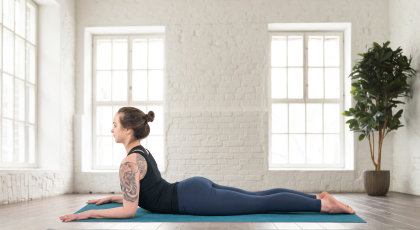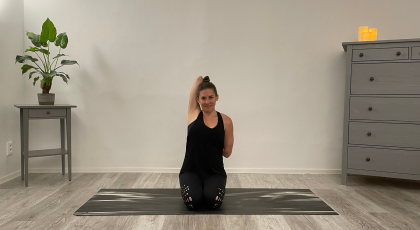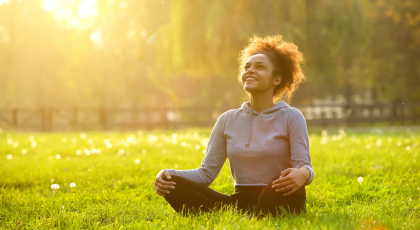View basket (0 items $0.00)
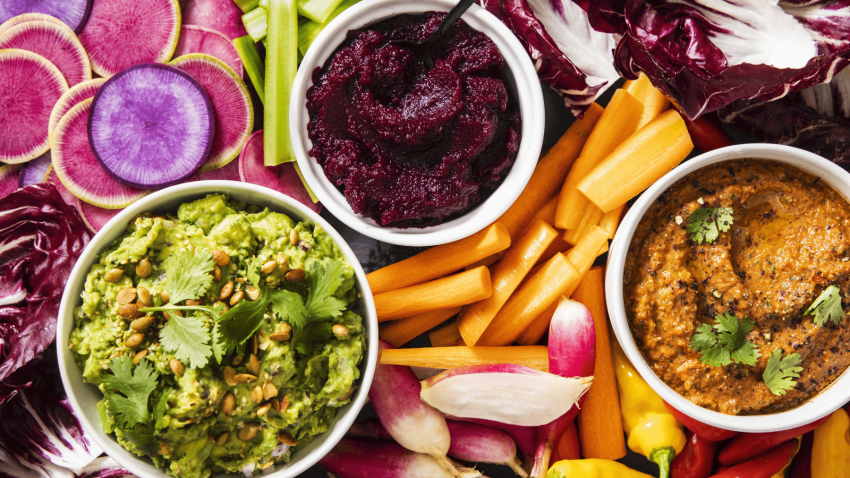
Food Story: How to Eat Like a Yogi
Elise Museles is a certified eating psychology and nutrition expert, creator of the Food Story Method and platform, and host of the popular podcast “Once Upon a Food Story.” We recently spoke with Elise about her new book Food Story: Rewrite the Way You Eat, Think, and Live.
YogaUOnline: Elise, how did you have the courage to take a leap from your career in law to find your true passion?
Elise Museles (EM): Part of it was because I became a mom. When I went back to immigration law after having kids, the laws were so much more stringent, and it was really hard for me to know that some of the court decisions were breaking up families. I ended up having some internal conflict about it.
Somehow, I always knew deep down that I would end up working in nutrition. And once I finally decided that I was going to take the leap, it was a full-body “Yes!” There was a period when I was going back and forth wondering, “Should I really go for it? This is crazy after all the years of law school!” But I’m so glad that I trusted my gut, and now I’m doing what I love every day.
YogaUOnline: We’d love to hear more about your upcoming book. What inspired you to write Food Story?
EM: It’s something that’s been inside of me for a really long time. I just wanted to be able to have a place where I could put all my methods together and help women work through some of their eating challenges and issues that prevent so many of us from living our best lives.
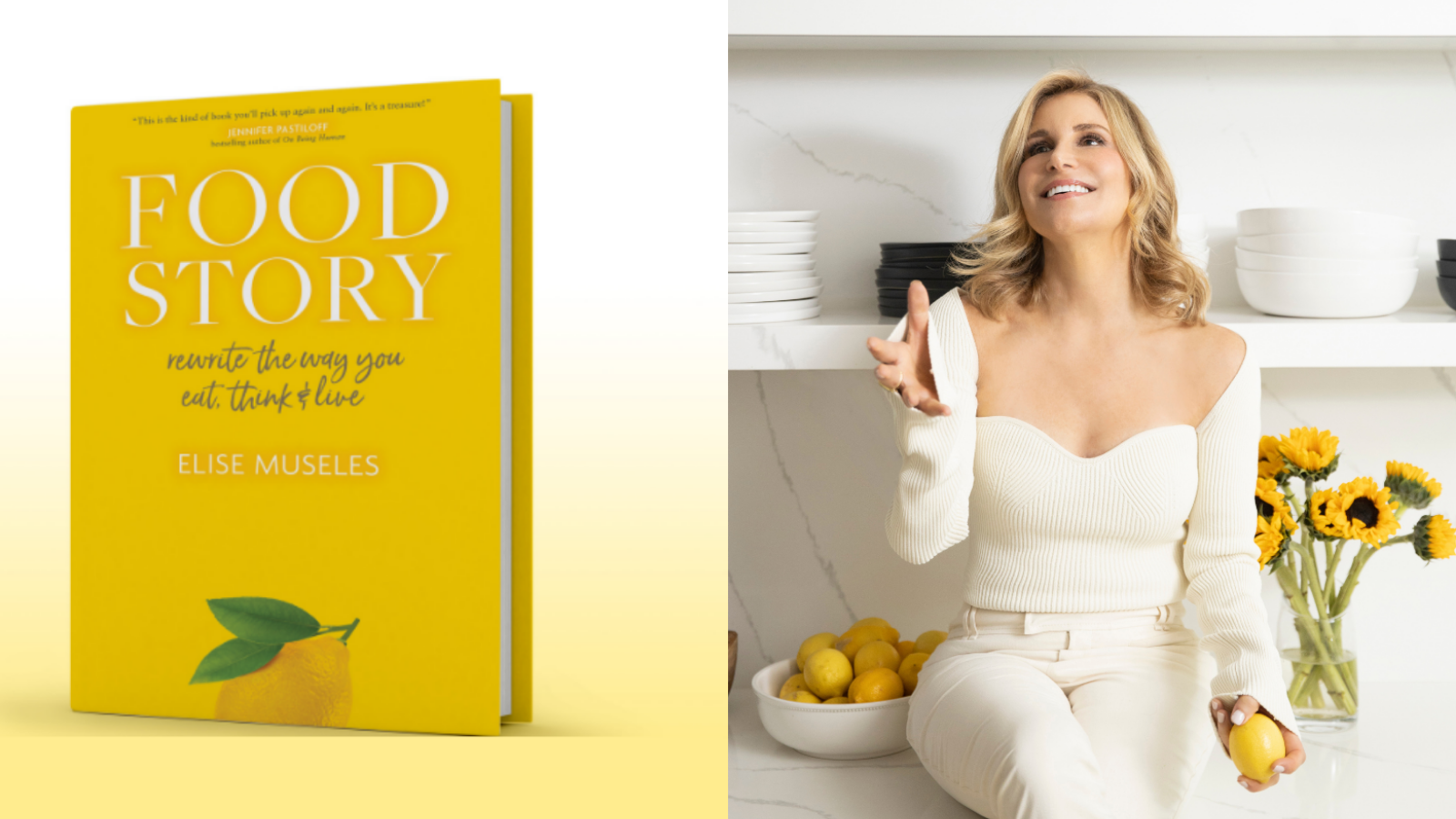
YogaUOnline: Why do you think Food Story is an essential read for yoga students and teachers?
EM: There are a lot of parallels in this book with the yogic lifestyle. One of the main messages I want to impart to the reader is that they can trust their body and learn to relax in their body. Because good things happen when we’re connected to our bodies and when we aren’t in a stressed-out state. And I think that yoga also offers that.
My book is about being present with your food and present in your mind because when you worry, you’re focused on some uncertain future. And for me, one of the most powerful lessons that I learned as a yoga student was how to be in my body in the moment.
I never use the word “mindfulness” because it has become such a part of our language now that it’s overused and loses meaning. But if we get back to the root of what mindfulness means, this book teaches mindfulness through being present at your meals, paying attention to how your body feels and responds to food, and noticing your thoughts. And I think yoga teaches the same thing.
YogaUOnline: In a few words, what’s the biggest takeaway message from Food Story you hope your readers will come away with?
EM: The first thing is that we all have a food story. And a food story isn’t necessarily negative. Your food story is a big swirl of many things: your memory-laden meals, the messages you received from family members and other influential people in your life, and all the meals along the way. There are so many moving parts that go into creating a food story, and just because your story played out a certain way doesn’t mean that it will always be that way.
The beautiful thing about our story is it’s always evolving. There are new characters, new themes, and new plot twists that come in. If we realize we actually have the power to pick up the pen, it will help us move forward and feel more hopeful about creating a better relationship with food—and ourselves.
We all have a certain amount of conditioning, and we all have some exposure to food issues and trauma. And trauma can be big or small, but it may limit you from being completely at peace and relaxed around food. I want everyone who reads Food Story to come to a new place where they feel comfortable with their choices and where they don’t blame themselves if they don’t get a habit right off the bat.
And like I said, your food story is always evolving, and there’s always another opportunity to do things differently. But having that trust in yourself that you hold everything you need to write the next chapter and do it your way—I hope everyone walks away with that. My hope is that you don’t feel shame, frustration, or any sort of internal conflict with what you’re eating or cooking and that you feel relaxed and at peace with food.
YogaUOnline: How did you decide which recipes to include in Food Story?
EM: There are so many incredible cookbooks out there, and I knew that I needed to come up with an approach to food that felt new and different so the reader could experience food in a brand-new way. I offer a fun science-backed approach to eating that puts you back in the driver’s seat.
All the recipes are organized according to mood! I identified seven different moods in the book: happy, focused, comforted, strong, radiant, sensual, and calm. Because those are the desired feelings that, in my experience, people want to feel. It was so much fun for me to research ingredients and understand how certain foods affect the brain and the body to influence our thoughts, behaviors, and overall mood.
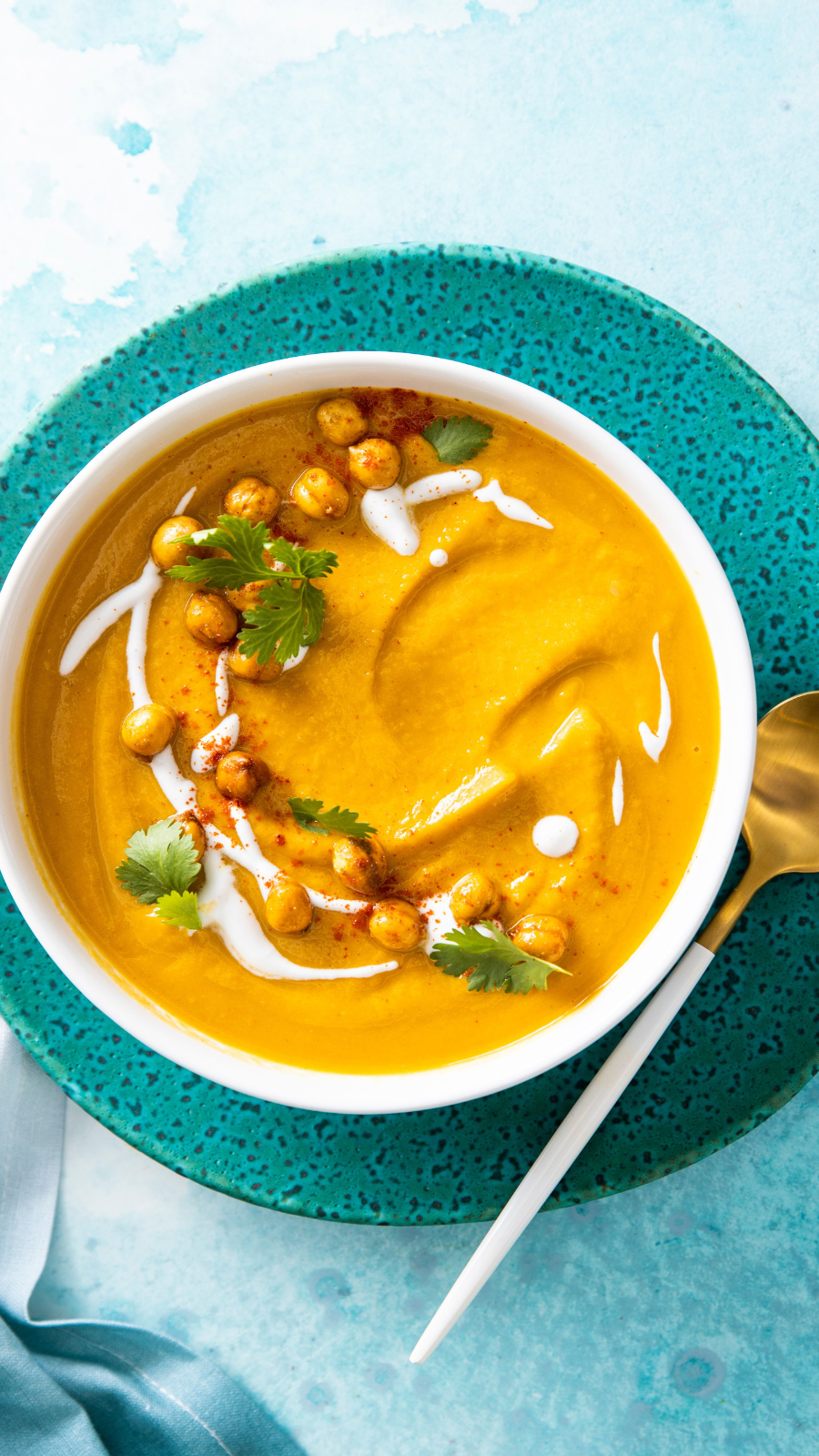 YogaUOnline: Are there any comforting recipes for late fall to early winter that you’d like to share with our readers?
YogaUOnline: Are there any comforting recipes for late fall to early winter that you’d like to share with our readers?
EM: A great recipe for this time of year is my Roasted Root Vegetable and Chickpea Soup. It’s filled with warming spices that have anxiety-reducing properties. This dish is also a hearty way to flood your body with nourishment and calm. Along with the grounding root vegetables, it’s packed with plant-based protein from chickpeas.
And I did something interesting with the chickpeas in this recipe. You purée half of them so they’re actually smooth in the soup, and you’re not just eating whole beans. Then, you roast or bake the rest so they’re crispy, almost like a crouton that you put on top.
All the ingredients in it are very soothing, and soup is nourishment for the soul.
YogaUOnline: What is your best self-care tip for all of us?
EM: For many women in today’s day and age, we put everyone else first. I think knowing how to flex your “no” muscle is key. That means even if I really want to do something, but I know it’s going to create stress because I’m overwhelmed or stretched too far, knowing how to say “no” can be a major form of self-care. That’s such a huge thing.
Also, acknowledging that you’re just as important—if not more important—than everybody else. The expressions, “You have to fill your own cup first,” or “You have to put your own oxygen mask first,” have stuck around for a reason. Because it’s true!
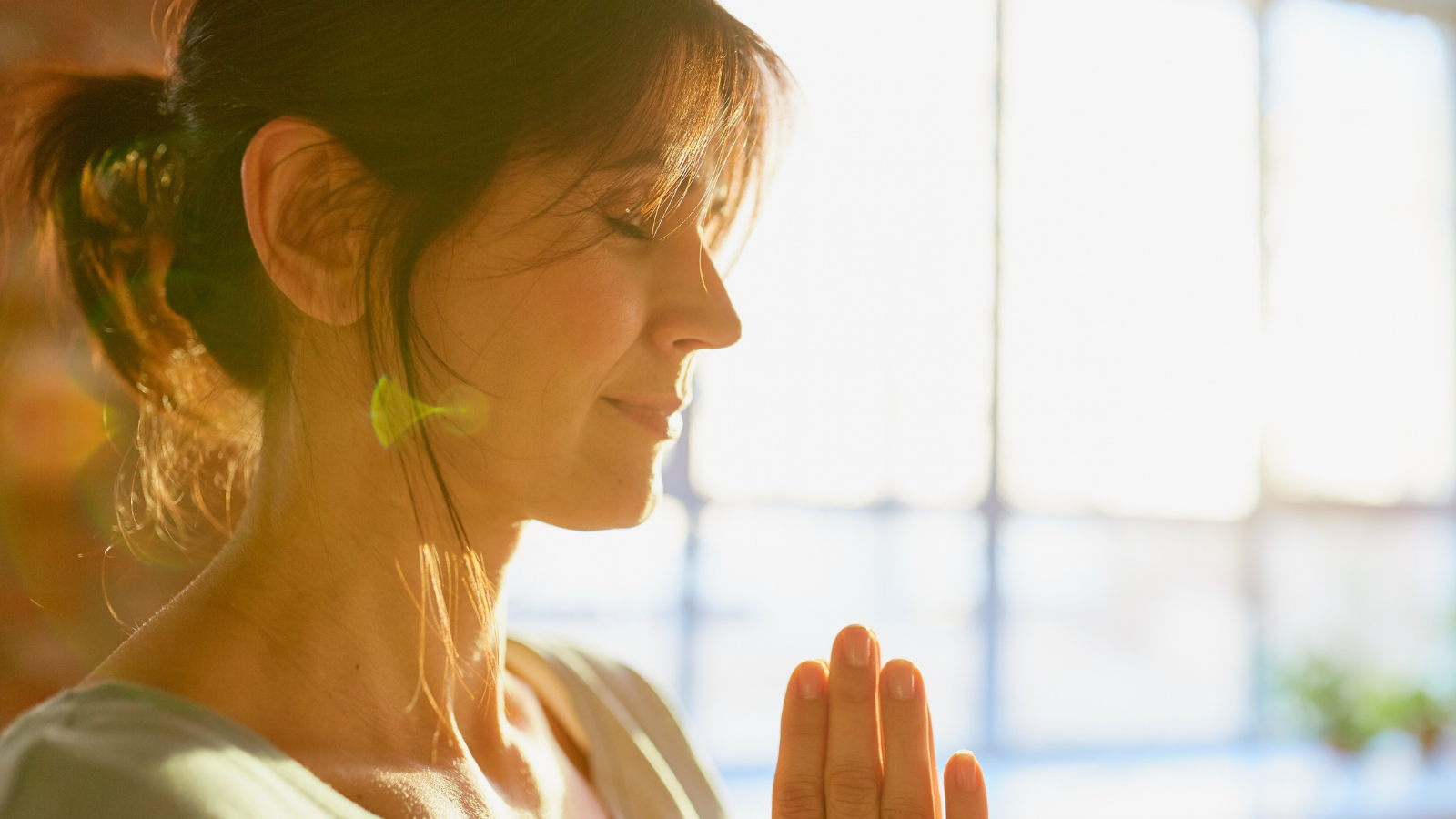
You don’t need justification. It should just be part of your day to say, “I know I need X amount of quiet time; I know I need to move my body, journal, or have a gratitude practice,” or whatever it may be that flips that switch, so you’re less stressed and more grateful.
There are so many moms who don’t sit down to eat because they’re busy feeding their kids and tending to their needs. But you need to sit down to eat, too. So, if you have to, put your own self-care on your calendar and do it until it becomes part of your day. You don’t need to justify it. Just make it your routine! It is just crucial not just for you but for everyone around you too.
YogaUOnline: Thank you so much, Elise! We look forward to reading your book.
 Lacey Ramirez works for YogaUOnline and is an ERYT-500 yoga teacher, global health researcher, and writer based in the California Bay Area. Through her work, she seeks to make yoga accessible, inclusive, and equitable.
Lacey Ramirez works for YogaUOnline and is an ERYT-500 yoga teacher, global health researcher, and writer based in the California Bay Area. Through her work, she seeks to make yoga accessible, inclusive, and equitable.
Lacey discovered yoga as a tool for centering during her years as a competitive runner. Since then, yoga has served as a way to connect with her body throughout her experience of pregnancy and parenthood. She teaches because she hopes others can use this sacred practice for calming, healing, and transformation.
As a yoga teacher, Lacey specializes in teaching restorative, Yin, prenatal, and trauma-informed Vinyasa yoga. She has also completed birth doula and prenatal/postnatal barre certifications and trainings. Additionally, she holds a Masters of Science in Global Health and Population from Harvard T.H. Chan School of Public Health. To learn more and connect, visit her website laceyramirez.com

Elise Museles is a certified eating psychology and nutrition expert, creator of the Food Story Method and platform, and host of the popular podcast Once Upon a Food Story. As an author, speaker, and mind-body eating coach, Elise’s mission is to empower people to create a healthier relationship with food and their bodies by changing what’s on their plate—and what’s in their minds. For more, visit elisemuseles.com or check out her new book Food Story: Rewrite the Way You Eat, Think, and Live.
*Recipes excerpted from the book Food Story: Rewrite the Way You Eat, Think, and Live by Elise Museles © 2021 Elise Museles, reprinted with permission from the author and the publisher, Sounds True, Inc.
Featured Courses





